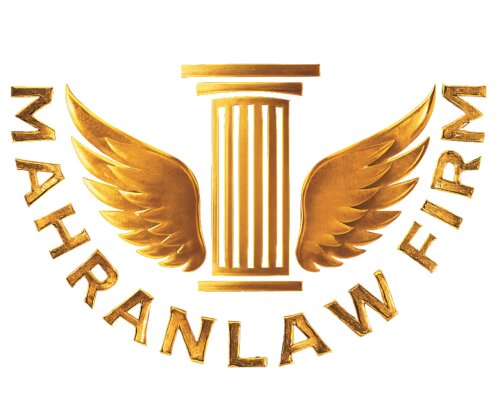Best Wrongful Termination Lawyers in Agouza
Share your needs with us, get contacted by law firms.
Free. Takes 2 min.
List of the best lawyers in Agouza, Egypt
About Wrongful Termination Law in Agouza, Egypt
Wrongful termination refers to an employer ending an employment relationship in a way that violates the law, the employment contract, or public policy. In Agouza - as in the rest of Egypt - employment relationships are governed primarily by the national labour legal framework and by the terms of written or oral employment contracts. While local practice and the local labour office and courts in Giza and Agouza handle cases on the ground, the legal principles that determine whether a dismissal is wrongful are national rather than municipal.
Common forms of wrongful termination include dismissal without a lawful reason when a reason is required, termination that violates the contract, dismissals that breach anti-discrimination or maternity protections, dismissals in retaliation for union activity or whistleblowing, or termination without proper notice or severance where those are due.
Why You May Need a Lawyer
Employment disputes can involve complex interactions between statutory rights, contractual clauses, collective agreements, and evidentiary questions. A lawyer can help in many situations, including:
- When you receive a sudden termination letter and need to know whether it is lawful and what immediate steps to take.
- If your dismissal appears to be discriminatory or retaliatory - for example because of gender, pregnancy, union activity, religious belief, or complaints about illegal conduct.
- When an employer offers a quick settlement or asks you to sign a waiver - a lawyer can evaluate whether the offer is fair and explain the consequences of signing.
- If the employer refuses to pay unpaid wages, notice pay, severance, or other statutory entitlements.
- If you need to file a claim at the local labour office or court and want someone to prepare your case, collect and present evidence, and represent you in hearings.
- When the case may result in reinstatement, back pay, or complex compensation calculations and you need professional advocacy to achieve the best outcome.
Local Laws Overview
Legal framework - Employment law in Agouza follows Egypt’s national labour statutes and regulations. These set out basic rights and employer obligations on hiring, contracts, working hours, leave, termination, social insurance and severance. Collective agreements and employer policies may add further terms where applicable.
Contract types - Employment may be under fixed-term (limited) contracts or indefinite-term contracts. The rights and protections available on termination can depend on contract type and the specific terms agreed between parties.
Grounds for dismissal - Some dismissals require lawful cause and prior procedure; others may be permissible provided notice or compensation is paid. There are special protections against dismissal for reasons such as pregnancy, illness from work-related injury, union activity and other protected activities.
Notice and compensation - Employment law and the contract/collective agreement normally govern notice periods and severance or end-of-service benefits. Where notice is not given, compensation in lieu of notice may be due. Where termination breaches statutory protections, remedies can include reinstatement, payment of back wages, and compensation.
Dispute resolution - Labour disputes typically begin with filing a complaint at the local labour office or through mediation and conciliation procedures. If reconciliation fails, claims may proceed to the competent labour court or tribunal in the governorate that includes Agouza. Proceedings are conducted in Arabic and involve administrative deadlines and evidence requirements.
Time limits - There are statutory deadlines for bringing labour claims. These time limits can be short, so acting promptly after dismissal is important.
Frequently Asked Questions
Can my employer fire me without giving a reason?
An employer may sometimes terminate an employment relationship, but the legality depends on the contract type, the reasons for dismissal and applicable statutory protections. If the dismissal violates contractual terms, statutory protections, or anti-discrimination rules, it may be wrongful. You should obtain the employer’s written termination notice and seek advice quickly.
Do I have to be paid notice or severance if I am dismissed?
Payments on termination depend on the contract, collective agreement and statutory rules. If notice is required and not given, compensation in lieu of notice may be due. Severance or end-of-service benefits are due in many cases, but the amount and entitlement depend on the employment relationship and how the termination occurred.
What if I was dismissed because I joined a union or complained about safety?
Dismissing an employee for union membership, lawful union activity or for reporting health and safety violations is likely to be unlawful. Such dismissals can give rise to strong remedies, including reinstatement and compensation. Document any proof you have of the protected activity and the employer’s behavior.
How do I challenge a dismissal in Agouza?
Start by asking for a written termination notice and reviewing your employment contract. Preserve pay slips, employment records, emails and messages. You can then file a complaint with the local labour office or seek immediate legal advice. Many disputes go first to conciliation or mediation before a court hearing. A lawyer can help prepare and file a claim and represent you before the labour authorities and courts.
Is reinstatement a common outcome?
Reinstatement is a possible remedy when a dismissal is found to be unlawful, but it is not always ordered. Compensation or a negotiated settlement are often the practical outcomes. Whether reinstatement is desirable depends on your circumstances, the working relationship, and available remedies.
How long do I have to bring a claim after being fired?
There are statutory time limits for labour claims. These deadlines vary by claim type and the procedural route used. Because deadlines can be short, you should act promptly - obtain legal advice and begin the administrative or legal process without delay.
What evidence should I collect?
Keep all employment documents such as the contract, payslips, termination letter, emails or messages about the dismissal, performance reviews, witness contact details, records of complaints you made, and any correspondence with the employer. Photocopies and secure backups are helpful. A lawyer can guide you on additional relevant evidence.
Can a foreign national bring a wrongful termination claim in Agouza?
Yes. Foreign nationals working in Egypt generally have the right to bring labour claims, but they should be aware of immigration status, work permits and possible additional considerations. Proceedings will be in Arabic and you may need a translator. Consult a lawyer experienced with cases involving foreign workers to protect your rights and coordinate with consular services if necessary.
What if my employer offers a settlement - should I accept?
Settlement offers can be practical, but you should not accept or sign away rights without understanding the full legal and financial consequences. A lawyer can assess whether the offer is fair, negotiate terms, and ensure that you are not waiving rights to further claims without appropriate compensation.
Can I be dismissed while on sick leave or maternity leave?
There are special protections for employees on sick leave and for pregnant employees or those on maternity leave. Dismissal in these circumstances can be more likely to be deemed unlawful and may attract remedies including reinstatement and compensation. Seek advice immediately if dismissal occurs during protected leave.
Additional Resources
Ministry of Manpower and Immigration - The national authority responsible for labour policy and enforcement. Local labour offices and inspectorates handle workplace complaints and conciliation.
Local Labour Office in Giza and Giza Labour Court - Locations where labour disputes are typically filed and where hearings and conciliation procedures take place for cases arising in Agouza.
Egyptian Bar Association and local lawyers - For qualified legal representation and advice on employment disputes and court proceedings.
Trade unions and professional associations - May provide support, representation or guidance for unionized workers or sector-specific issues.
Civil society organisations and legal aid clinics - Some non-governmental organisations and university legal clinics provide advice or assistance to workers who cannot afford full private representation.
Consular or embassy offices - For foreign nationals, the relevant embassy or consulate can provide guidance on local procedures and may assist with practical issues, though they do not provide legal representation.
Next Steps
1. Preserve documents and evidence - Keep copies of your employment contract, payslips, termination notice, correspondence, and any other records that relate to your employment and dismissal.
2. Request a written reason for dismissal - Ask your employer to provide a written explanation of the termination and any calculations of amounts owed.
3. Seek legal advice promptly - Contact a qualified labour lawyer in Giza or Agouza to review your case, inform you of deadlines and represent you in negotiations, conciliation or court.
4. File a complaint where necessary - With your lawyer's help, initiate the administrative conciliation process at the local labour office or prepare the court claim if conciliation fails.
5. Consider negotiation - In many cases a negotiated settlement can resolve the matter faster than litigation. Your lawyer can negotiate terms that protect your interests.
6. Be mindful of time limits and language - Act quickly to preserve rights and, if you do not speak Arabic, secure translation help for documents and proceedings.
7. Avoid signing waivers or releases without advice - Do not sign any documents that waive your rights until a lawyer has reviewed them.
Taking these steps will help you protect your rights and achieve the best possible outcome after a termination. If you are unsure where to begin, start by speaking with an experienced local labour lawyer who can guide you through the options available under Egyptian law.
Lawzana helps you find the best lawyers and law firms in Agouza through a curated and pre-screened list of qualified legal professionals. Our platform offers rankings and detailed profiles of attorneys and law firms, allowing you to compare based on practice areas, including Wrongful Termination, experience, and client feedback.
Each profile includes a description of the firm's areas of practice, client reviews, team members and partners, year of establishment, spoken languages, office locations, contact information, social media presence, and any published articles or resources. Most firms on our platform speak English and are experienced in both local and international legal matters.
Get a quote from top-rated law firms in Agouza, Egypt — quickly, securely, and without unnecessary hassle.
Disclaimer:
The information provided on this page is for general informational purposes only and does not constitute legal advice. While we strive to ensure the accuracy and relevance of the content, legal information may change over time, and interpretations of the law can vary. You should always consult with a qualified legal professional for advice specific to your situation.
We disclaim all liability for actions taken or not taken based on the content of this page. If you believe any information is incorrect or outdated, please contact us, and we will review and update it where appropriate.









